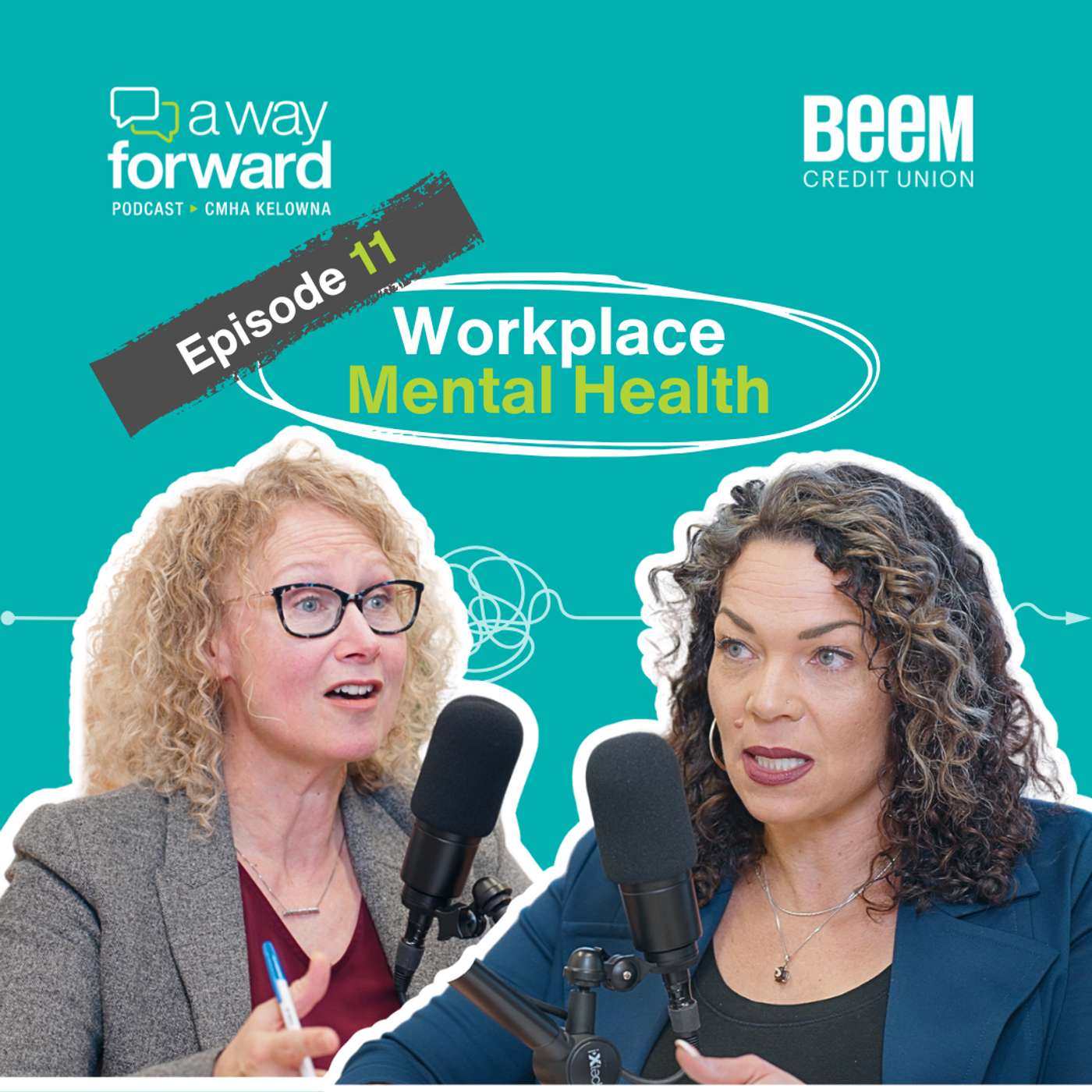Podcast Episode Details
Back to Podcast Episodes
Episode 11: Workplace Mental Health
Episode 11
In Episode 11: Workplace Mental Health of A Way Forward Podcast | Presented by Beem Credit Union, host Jessica Samuels is joined by Candace Giesbrecht, Director of People, Culture & Engagement at CMHA Kelowna, to explore what it means to have a mentally healthy workplace—and why it's a shared responsibility across the entire organization. They discuss how measuring psychological safety, addressing burnout, and making evidence-informed decisions can drive long-term culture change in the workplace.
Key Topics Discussed:
1. What Is a Mentally Healthy Workplace?
- Why it’s more than just a CEO or HR declaration.
- The role of shared responsibility and leadership buy-in.
- Importance of aligning actual work with job descriptions and expectations.
2. Measuring Psychological Safety
- Introduction to Guarding Minds at Work, a free, evidence-based assessment tool.
- Explanation of the 13 psychosocial factors that influence workplace mental health.
- How asking staff for input—and acting on it—can improve trust and engagement.
3. CMHA Kelowna’s Journey to Address Burnout
- Using data to identify burnout risk as a key area for improvement.
- Shifting onboarding practices and job clarity to reduce staff overwhelm.
- Why meaningful change took two years—and how it led to better hiring, reduced turnover, and deeper organizational insight.
4. From Insight to Action
- The importance of going beyond surveys to follow through with transparent communication and real change.
- The impact of getting senior leaders involved in front-line observations.
- How even small, focused actions can spark broader transformation.
5. Starting the Conversation as a Leader
- Tips for senior leaders to break the stigma and foster openness about mental health.
- The power of vulnerability in leadership: "I’m not feeling like myself—anyone else?"
- Using relevant stats or research to spark meaningful workplace conversations.
Key Takeaways:
- A mentally healthy workplace requires more than intention—it needs measurement, leadership, follow-up, and time.
- Burnout can be addressed by tackling root causes like onboarding, job clarity, and realistic expectations.
- Just asking how staff are doing can start a ripple effect—but only if it's followed by action.
- Leaders set the tone. Courageous conversations from the top can help break stigma and shift culture.
Resources:
What is MH in the Workplace
https://www.canada.ca/en/public-health/services/mental-health-workplace.html
https://www.who.int/news-room/fact-sheets/detail/mental-health-at-work
https://cpa.ca/psychology-works-fact-sheet-mental-health-and-the-workplace/
https://www.ccohs.ca/oshanswers/psychosocial/mh/mentalhealth_address.html
https://mentalhealthcommission.ca/what-we-do/workplace/
Stats on MH in workplace
https://cmha.ca/what-we-do/national-programs/workplace-mental-health/takeaways/
https://www.who.int/news-room/fact-sheets/detail/mental-healt
Published on 5 months, 3 weeks ago